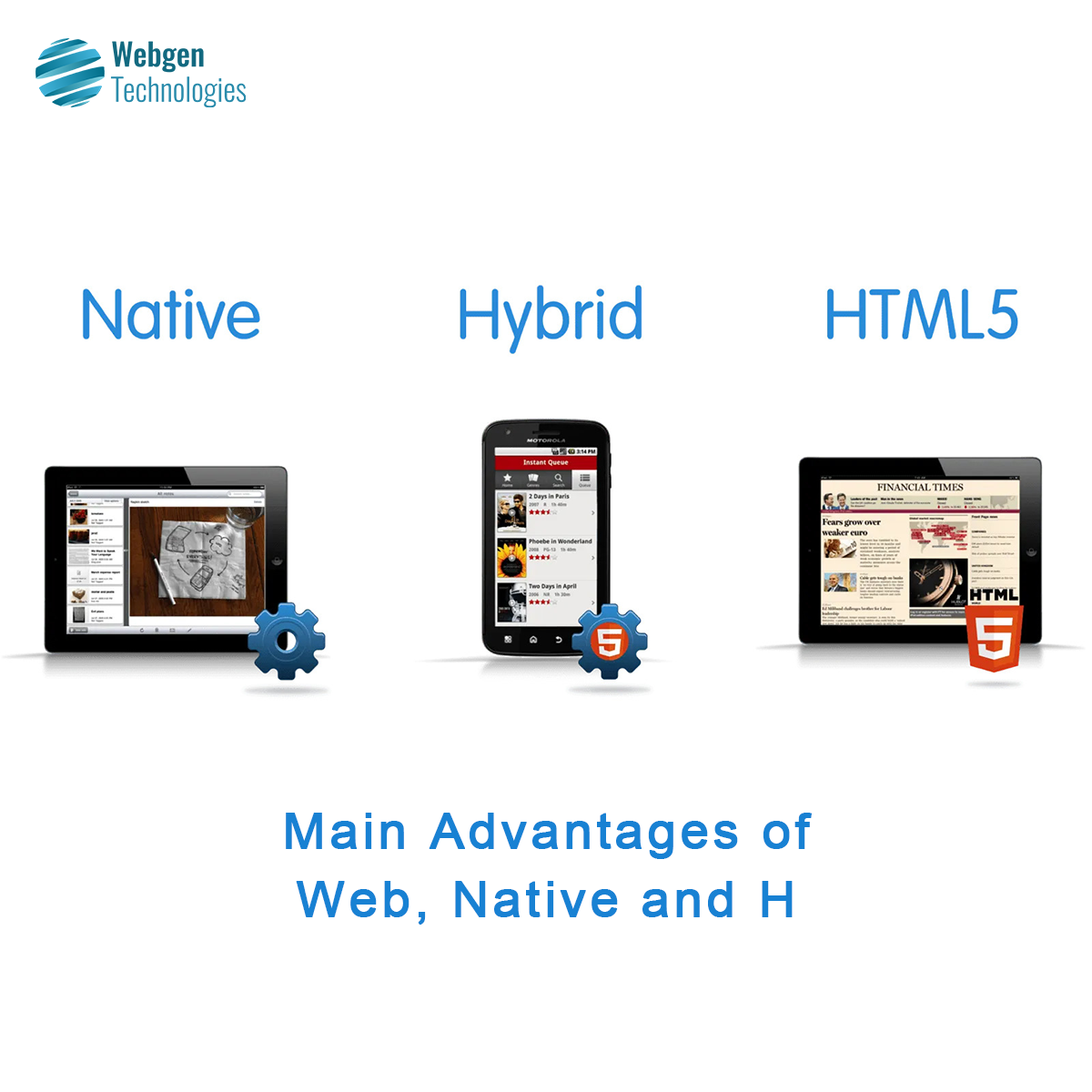The mobile app ecosystem is an ever-expanding and highly influencing industry around the world. While companies utilize this platform to leverage their businesses, users turn to apps for an enhanced experience, convenience of accessibility, and heightened responsiveness.
With the popularity of apps as an asset for an enterprise in this era, it is reasonable to consider the kind of app you would want to build for your business. Besides the availability of the different types of app options ranging from native to web to hybrid apps, you should have a thorough understanding of the same to make the most of this asset.
The article inscribed by the in-house app developing experts at Webgen Technology will help you attain clarity about the terminology involved in developing a successful mobile app for a business in the most understandable manner. Keep on reading the article below to learn more.
However, before delving into the advantages of the web, native and hybrid apps, let us first understand each of these terms, respectively.
Web Apps:
Developed using JavaScript, CSS, and HTML5, unlike an iOS or Android app, Web apps do not need to be downloaded but load in browsers like Chrome, Safari, or Firefox. Although Web app is an application accessed via a web browser over a network such as the Internet, the web app is different from a Website. It provides additional functionality and interactivity rather than simply serving the purpose of providing information to the visitors like a website.
Native Apps:
Unlike web apps, primarily written in Javascript, Native Apps are a software application developed in a specific programming language for the particular device platform, either iOS or Android.
Hybrid Apps:
Built with Javascript, HTML, and CSS, Hybrid apps are like web apps but can be installed like a native app.
Benefits of Web, Native and Hybrid apps:
- Performance: Both native and hybrid apps offer high-quality usability and performance as compared to web apps. Yet, native apps surpass both web apps and hybrid apps in this regard.
- Security and quality assurance: Native apps offer higher security and quality assurance as compared to both web apps and hybrid apps.
- Responsive: Native apps offer the fastest, most reliable, and most responsive experience to users. Besides, Web apps and hybrid apps are both slower and much less responsive than native apps.
- UX/UI: Web apps provide a complicated user experience by requiring the users to take more steps in using a web app. The native app provides better UX/UI, as compared to both web apps and hybrid apps, to make an app user-friendly for all platforms.
- Functionality: Native apps enable the user to take full advantage of all the functionalities of a mobile device as compared to both web apps (which allows users to make limited use of specifically available sensors) and hybrid apps (where some device features may be complicated to integrate).
- Cost: Web apps are less expensive upfront as compared to native apps. Besides, native apps further cost more to develop than hybrid apps and take longer to build. However, even though the costs for a hybrid app are usually between the costs of a web app and a native app, native apps nevertheless offer higher long-time investment protection as opposed to both web apps and hybrid apps.
Hence, are the benefits of each type of apps – web app, hybrid app, and native app, stated above by the in-house app developing experts at Webgen Technologies, as opposed to each to provide greater clarity to the audience.
Do you have any specific mobile app development regarded questions that you would like to obtain answers from the industry experts themselves? Contact Webgen Technologies today!
Views: 978





